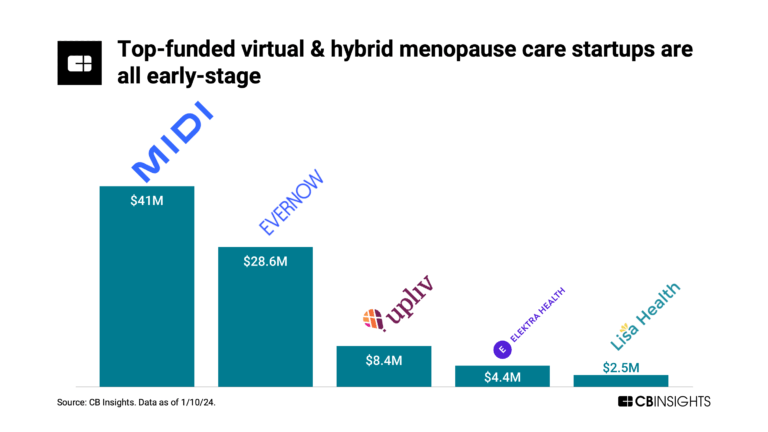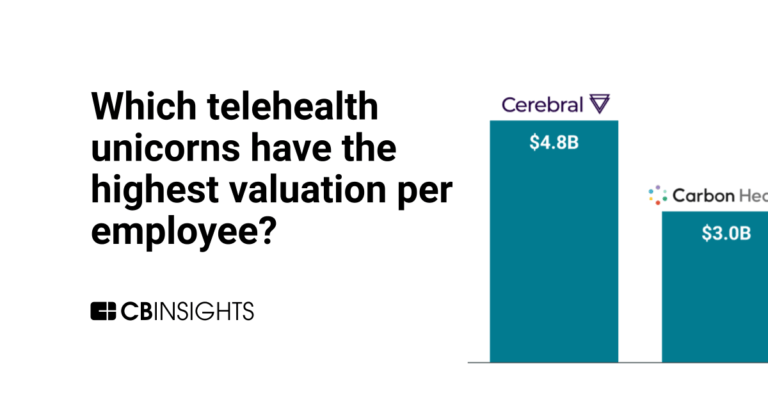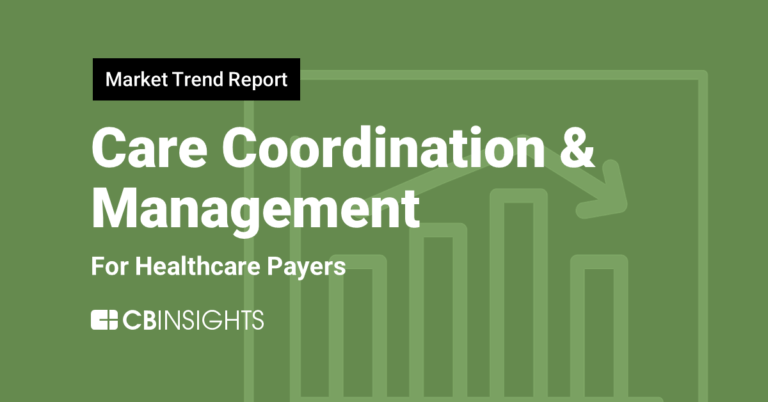
Kindbody
Founded Year
2018Stage
Series D - II | AliveTotal Raised
$307.01MLast Raised
$25M | 2 yrs agoMosaic Score The Mosaic Score is an algorithm that measures the overall financial health and market potential of private companies.
-50 points in the past 30 days
About Kindbody
Kindbody is a fertility clinic network. It operates in the healthcare sector and provides a comprehensive range of reproductive health services. The company offers fertility assessments, testing, egg freezing, in vitro fertilization (IVF), and virtual fertility telemedicine, as well as women's wellness services. Kindbody is also a family-building benefits provider for employers, aiming to make fertility care more affordable and accessible to a broader population. It was founded in 2018 and is based in New York, New York.
Loading...
ESPs containing Kindbody
The ESP matrix leverages data and analyst insight to identify and rank leading companies in a given technology landscape.
The virtual & hybrid fertility clinics market leverages technology to provide remote consultations, monitoring, and treatment for individuals struggling with fertility issues. This market includes a range of solutions, such as telehealth platforms, at-home fertility testing kits, and virtual fertility clinics that offer both in-person and remote services. The market is driven by increasing awarene…
Kindbody named as Leader among 12 other companies, including Maven, Progyny, and Carrot Fertility.
Kindbody's Products & Differentiators
Fertility and family-building benefits
Kindbody is a leading fertility clinic network and family-building benefits provider for employers offering comprehensive virtual and in-person care. Kindbody's clinically managed program includes fertility assessments and education, fertility preservation, genetic testing, in vitro fertilization (IVF), donor and surrogacy services, and adoption, as well as physical, mental, and emotional support from preconception through postpartum.
Loading...
Research containing Kindbody
Get data-driven expert analysis from the CB Insights Intelligence Unit.
CB Insights Intelligence Analysts have mentioned Kindbody in 9 CB Insights research briefs, most recently on Apr 25, 2024.
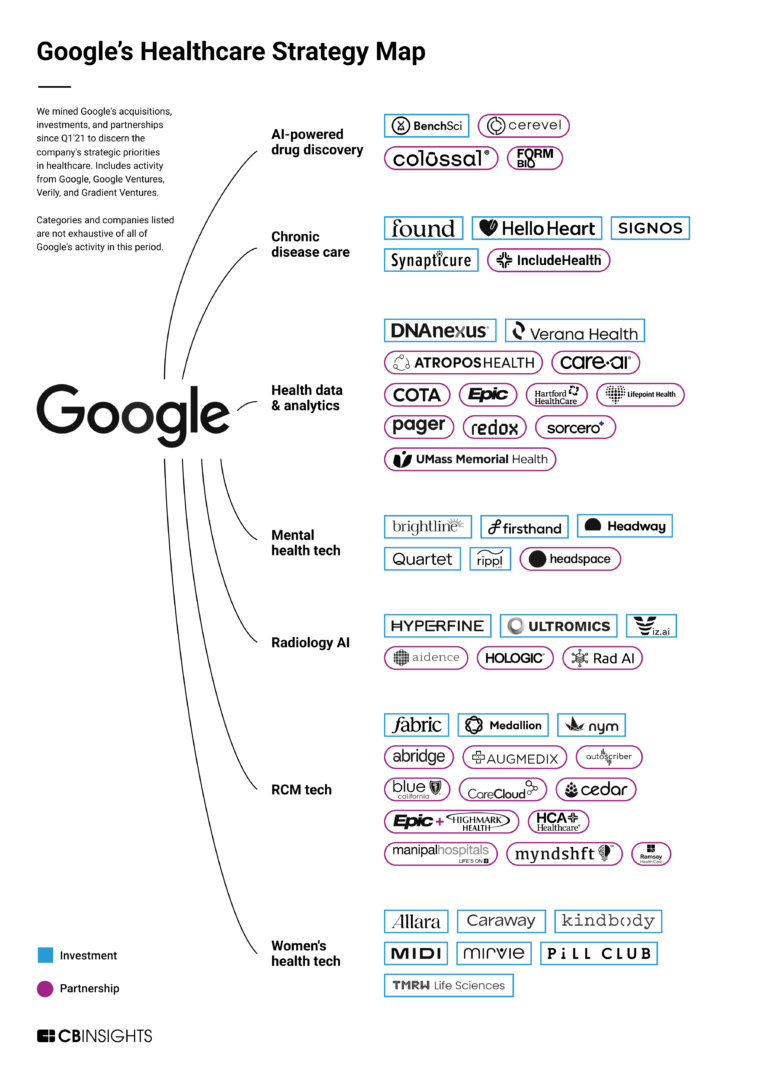
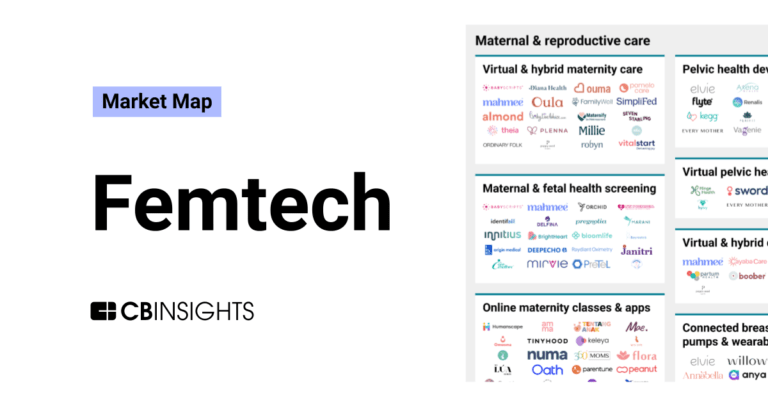
Mar 28, 2024
The femtech market map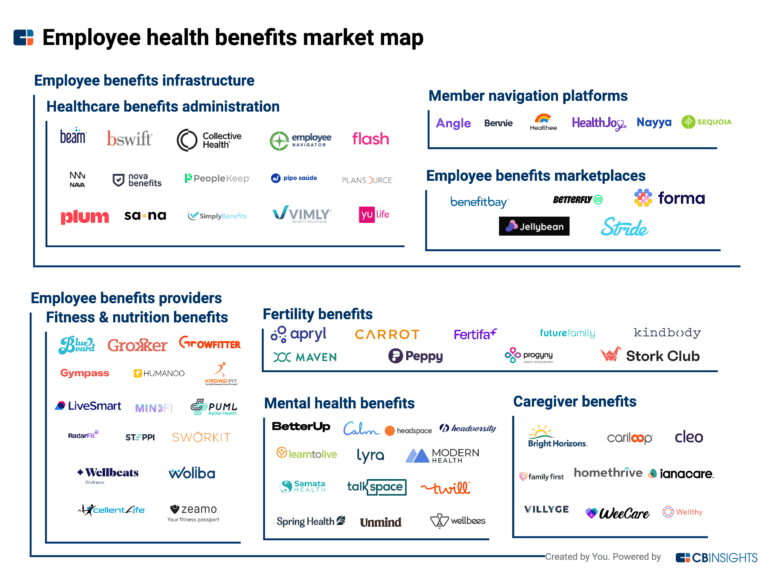
Aug 21, 2023
The employee health benefits market map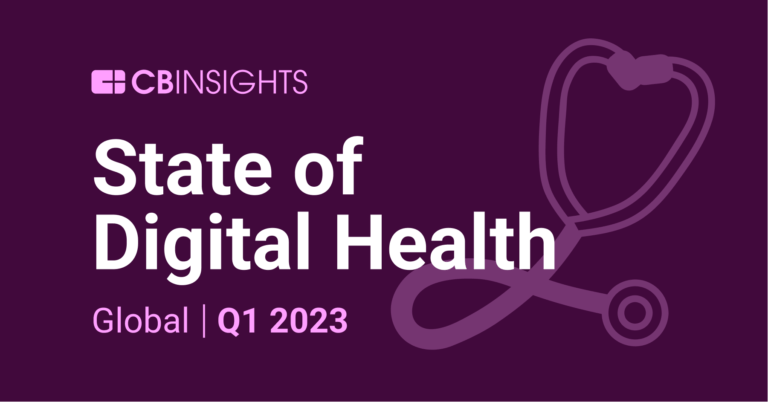
May 23, 2023 report
State of Digital Health Q1’23 ReportExpert Collections containing Kindbody
Expert Collections are analyst-curated lists that highlight the companies you need to know in the most important technology spaces.
Kindbody is included in 5 Expert Collections, including Unicorns- Billion Dollar Startups.
Unicorns- Billion Dollar Startups
1,270 items
Digital Health 50
450 items
The most promising digital health startups transforming the healthcare industry
Digital Health
11,305 items
The digital health collection includes vendors developing software, platforms, sensor & robotic hardware, health data infrastructure, and tech-enabled services in healthcare. The list excludes pureplay pharma/biopharma, sequencing instruments, gene editing, and assistive tech.
Telehealth
3,114 items
Companies developing, offering, or using electronic and telecommunication technologies to facilitate the delivery of health & wellness services from a distance. *Columns updated as regularly as possible; priority given to companies with the most and/or most recent funding.
Women's Health Tech
696 items
This collection includes companies applying technology to address a spectrum of physical, mental, and social well-being concerns specific to women. Examples include companies in reproductive health, maternal care, fertility tracking, and menopause support.
Latest Kindbody News
Mar 5, 2025
The issuePresident Donald Trump signed an executive order last month to develop policies that promote access to in-vitro fertilization and “aggressively reduce” out-of-pocket and insurance costs related to treatment. The order directs the office that oversees domestic policy to submit a list of recommendations in 90 days.More people have sought fertility treatment in the last decade, as more women delay having children and rely on medical interventions to help them get pregnant. Four in ten U.S. adults said in 2023 that they or someone they knew used fertility treatments – up from 33% from just five years earlier, according to a study from Pew Research Center.Although fertility treatments are on the rise, there’s still a gap in accessibility. Roughly 2% of all U.S. babies were conceived using IVF, according to the U.S. Centers for Disease and Control Prevention. Yet about 16% of people globally experience infertility, according to the World Health Organization. Price can deter patients from getting treatment, with a single IVF cycle costing anywhere from $15,000 to $20,000 and up to $30,000 when a donor egg is involved, according to the U.S. Department of Health and Human Services.Sparse insurance coverage and high costs have led fertility companies to crop up in the city to offer coverage outside traditional health plans. Those companies say the federal government’s focus on making IVF more accessible could drive policies that benefit the industry.“It’s sort of a watershed moment,” said Dr. Neel Shah, chief medical officer of the Lower Manhattan-based fertility provider Maven, adding that fertility coverage has historically been decided by the states. “There’s no shortage of things that could be done.”Fourteen states – including New York – require insurance companies to cover IVF in some capacity. New York’s law, which went into effect in 2020, requires that fully insured employers cover up to three IVF cycles for people diagnosed with infertility. The state also requires Medicaid to cover fertility drugs. But the requirements don’t apply to self-insured companies or people without a diagnosis of infertility, leading benefits companies to fill in the gaps.The players New York is home to some of the nation’s leading fertility companies, including Progyny, Maven and Kindbody. Local fertility executives say they’re optimistic about the financial impact federal policies could have on their industry.“The spirit of that executive order is very positive relative to the industry itself and certainly relative to us,” Pete Anevsky, CEO of Progyny, told Crain’s. “Until there’s more detail about that I really can’t guess, but the direction is positive.”Progyny, headquartered in Midtown, earned $1.2 billion in revenue last year, a 7% increase from 2023, according to a financial statement released last week. Though the company projected slower revenue growth in the coming year after losing Amazon as a major client, some analysts say federal policies could increase the company’s bottom line.“While the executive order lacks detailed policy actions, President Trump's advocacy for protecting and improving access to IVF coverage is broadly positive for the fertility space,” Allen Lutz, an equity research analyst at Bank of America, said in a recent research note. Federal legislation that preempts state law and mandates insurance coverage for IVF could increase demand for Progyny’s services, Lutz said, recommending investors purchase its stock and raising the target price from $25 to $30 per share.The city is also home to privately funded fertility benefit companies. Maven – which provides both fertility treatment and pregnancy and menopause care – closed a $125 million Series F in October, bringing its total fundraising to $425 million, the firm said. Flatiron-based startup Kindbody, which struggled to raise money last year, may also stand to benefit.Yeah, but…Trump’s executive order does not outline specific policies to curtail IVF’s hefty price tag – including one of the president’s campaign promises to make the treatment free.The city’s fertility industry can’t count on a windfall until policies are in writing. Although IVF access appears to be a bipartisan issue for now, Shah said future policies could resurface questions around fetal personhood and arguments that discarding embryos should be illegal. A court in Alabama ruled last year that frozen embryos had the same rights as a person, prompting the state to pass legislation to protect patients and providers from criminal liabilities. Discussions around personhood could bubble up amid conversations about access and affordability, according to Shah.What’s nextThe federal government has a May deadline to unveil recommendations on IVF policies. The policies could address two buckets: spotty access to insurance coverage and the high costs of care.The primary way to target sparse insurance coverage is by mandating coverage. A federal mandate for IVF coverage for all federal employees is “low-hanging fruit,” according to Shah, who also noted that there are hundreds of thousands of government workers and an increasing number of people seeking treatment.Targeting costs, however, would require the federal government to increase the supply of fertility treatments to meet the growing demand, Shah said. Currently there are approximately 1,200 reproductive endocrinologists – the physicians that provide IVF – in the U.S. Expanding the types of clinicians eligible to administer treatment, including general ob-gyns, could help offset high costs, he said.Asked about the feasibility of Trump’s campaign promise to make IVF free, Shah said that no health care procedure comes without costs.“Even having a baby in the U.S. is not free,” Shah said. “I think the question is more, how do we defray the costs.”
Kindbody Frequently Asked Questions (FAQ)
When was Kindbody founded?
Kindbody was founded in 2018.
Where is Kindbody's headquarters?
Kindbody's headquarters is located at 120 5th Avenue, New York.
What is Kindbody's latest funding round?
Kindbody's latest funding round is Series D - II.
How much did Kindbody raise?
Kindbody raised a total of $307.01M.
Who are the investors of Kindbody?
Investors of Kindbody include Morgan Health, Perceptive Advisors, RRE Ventures, Claritas Capital, Google Ventures and 19 more.
Who are Kindbody's competitors?
Competitors of Kindbody include Visana Health, Fertility Solutions, Boston IVF, Mate Fertility, Reproductive Medicine Associates and 7 more.
What products does Kindbody offer?
Kindbody's products include Fertility and family-building benefits and 1 more.
Loading...
Compare Kindbody to Competitors

Future Family provides financial solutions for fertility treatments within the healthcare sector. It offers financing plans and nursing support for individuals seeking IVF and egg freezing services. The company serves individuals and couples seeking fertility care and treatment financing. It was founded in 2016 and is based in San Francisco, California.

Univfy provides predictions of in vitro fertilization (IVF) success and costs within the fertility care sector. The company offers IVF success predictions through its PreIVF Report and assists with financial planning for fertility treatments, including IVF refund programs. Univfy serves the healthcare sector, specifically fertility clinics and patients seeking IVF treatments. It was founded in 2009 and is based in Los Altos, California.

Genea is a company that focuses on fertility treatments and reproductive health, operating within the healthcare industry. The company offers a range of services including fertility assessments, assisted conception treatments such as In Vitro Fertilization (IVF) and Intracytoplasmic Sperm Injection (ICSI), genetic testing, and egg freezing. Genea primarily serves individuals and couples seeking fertility treatments and reproductive health services. It was founded in 1986 and is based in Sydney, New South Wales.

Carrot Fertility operates within the reproductive health sector, offering services including fertility medication management, payment solutions for care, and support for family-building journeys such as egg, sperm, and embryo freezing, assisted reproduction, gestational surrogacy, adoption, and menopause management. The company serves employers, health plans, and benefit consultants, providing culturally competent care to members worldwide. It was founded in 2016 and is based in Menlo Park, California.

Care Fertility operatees as a provider in the healthcare sector, with a focus on fertility treatment and genetic diagnosis. The company offers a range of services including fertility treatments, genetic screening techniques, and fertility preservation procedures. These services are designed to assist individuals and couples in their journey towards parenthood. It was founded in 1997 and is based in Nottingham, United Kingdom.

Stork Club provides family-building benefits within the healthcare sector and focuses on reproductive health. The company offers services including fertility support, maternity care, newborn assistance, return-to-work programs, and menopause management. Stork Club caters to employers seeking to enhance their employee benefits package with reproductive health solutions. It was founded in 2017 and is based in San Francisco, California.
Loading...

